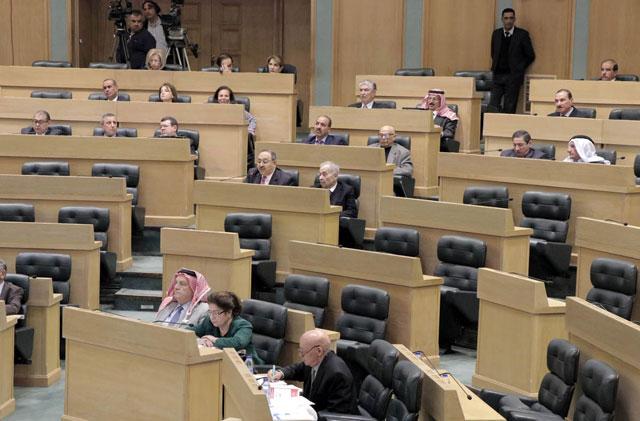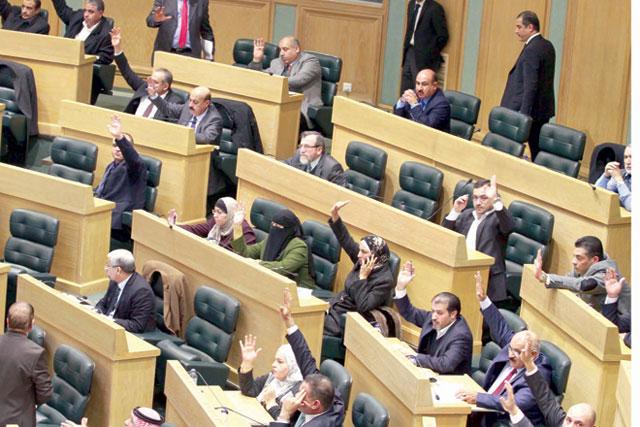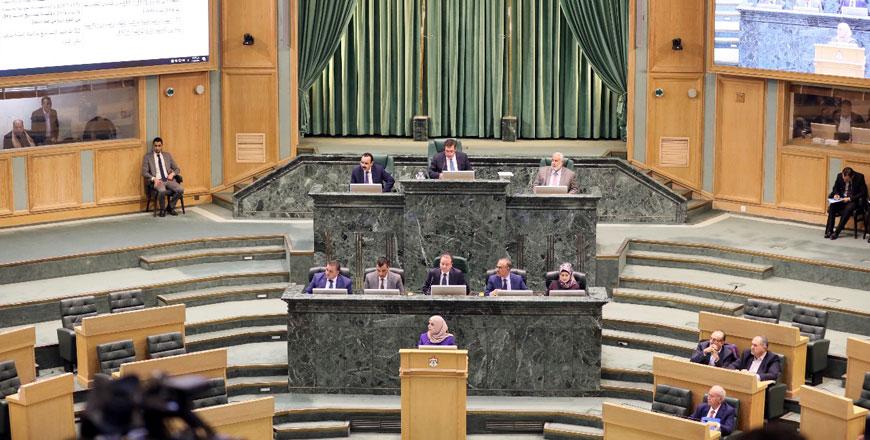You are here
Senate refers general pardon draft law to Lower House
By JT - Jan 27,2019 - Last updated at Jan 28,2019

In this photo taken on Sunday, senators can be seen in session. The Senate decided to send the general pardon bill back to the Lower House over a disagreement with MPs on the inclusion of crimes against authorities (Petra photo)
AMMAN — The Senate on Sunday referred the general pardon draft law to the Lower House, disagreeing with MPs to include crimes against authorities in the 2019 bill.
The Senate’s Legal Committee has rejected a provision worded by deputies, including crimes against authorities in the law. The panel said the decision sought to preserve the status of the state and limit attacks on public employees, especially since legal rights in such cases usually fall to the state rather than the victims.
Senators agreed with MPs to pardon some of the offences stipulated in the 2016 Drugs and Psychotropic Substances Law, the Jordan News Agency, Petra, reported.
The Upper House approved the decision in response to senators’ plea to help drug abusers resume normal lives and re-integrate them into the society, Petra, reported.
Attending the session, Minister of State and Deputy Prime Minister Rajai Muasher said that the government had endorsed a national strategy to fight drugs, presented by the Public Security Department, which includes building more centres for psychiatry, social and mental rehabilitation.
Muasher added that the government is currently considering the cancellation of imprisonment in cases related to bad cheques through adopting alternatives that can preserve the rights of others, such as a travel ban and increasing fines, noting that such procedures may need up to three years for endorsement.
The Lower House passed the general pardon draft law last week, granting full exemptions from fines, penalties and disciplinary measures to crimes and violations committed before December 13, 2018.
The version of the bill okayed by the MPs pardons crimes, offences and violations committed before His Majesty King Abdullah’s directives to the government to issue the law.
Under MPs’ amendments, traffic violation fines and drug-related crimes, with a number of exceptions, would also be pardoned, provided that the personal rights of the victims are waived.
Among crimes that would be excluded from the general pardon were those related to state security, forming or joining illegal organisations and espionage, in addition to theft and forgery.
Some manslaughter cases were also included on the list of crimes to be pardoned which cover, respectively, killing a person to facilitate or escape the punishment for a misdemeanour and a manslaughter perpetrated by several people.
The King had called for giving wrongdoers an opportunity to find the right path and correct their conduct, especially as other people have suffered financially from their misconduct, in solidarity with citizens who are going through difficult conditions, according to the statement.
Related Articles
AMMAN — The Lower House on Monday endorsed the general pardon draft law granting full exemptions from fines, penalties and disciplinary meas
AMMAN —The Senate will on Monday begin deliberating the general pardon draft law, the Chamber’s president, Faisal Fayez, announced on Thursd
AMMAN — The Lower House on Monday approved the Senate's amendments to the general pardon draft law, paving the way for the final ratificatio


















